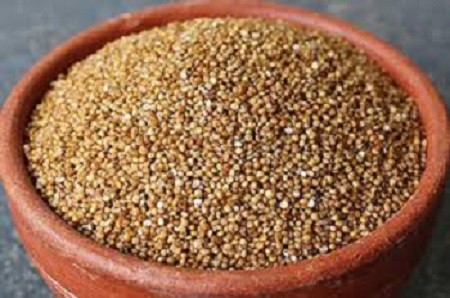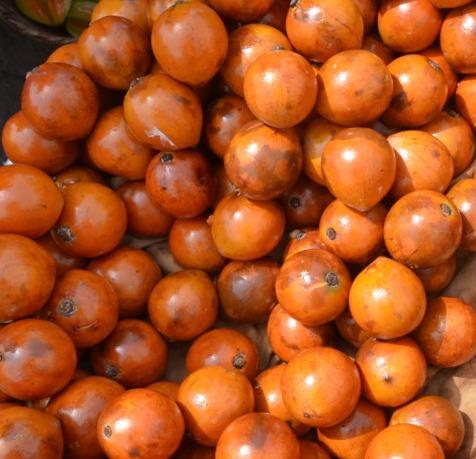
Millet is a cereal grain that belongs to the Poaceae family, commonly known as the grass family. Botanically known as Panicum miliaceum, millet is called dawa in hausa, achara in igbo and okababa in Yoruba. Millet is a small, round whole grain grown in India, Nigeria, and other Asian and African countries. It comes in varieties that differ in colour, appearance, and species. Pearl millet is the most widely produced variety intended for human consumption. Still, all types are renowned for their high nutritional value and health benefits.
Constituents
Millet is rich in calories, fat, carbohydrate, dietary fibre, protein, vitamins (like folate, niacin, pantothenic acid riboflavin, thiamine, pyridoxine, vitamin E, tocopherol alpha, vitamin K), calcium, iron, copper, magnesium, manganese, phosphorus, potassium, selenium and zinc. Millet is also rich in phenolic compounds, especially ferulic acid and catechins.
Preparations
It is common to see millet sold dried, puffed like rice, or ground like wheat flour. It may be soaked, fermented, boiled, toasted or baked. This grain is processed to make snacks, pasta, and nondairy probiotic beverages, breakfast porridge, side dish, salad add-in, or cookie or cake ingredient. Dried millet can be cooked like couscous or quinoa.
Pharmacological actions and medicinal uses
The ferulic acid and catechins act as antioxidants to protect the body from harmful oxidative stress. Studies in mice link ferulic acid to rapid wound healing, skin protection, and anti-inflammatory properties. Catechins bind to heavy metals in your bloodstream to prevent metal poisoning.
Millet is rich in fibre and non-starchy polysaccharides, two types of undigestible carbs that help control blood sugar levels. This cereal also has a low glycemic index (GI), meaning that it’s unlikely to spike the blood sugar levels. For instance, a study in 105 people with type 2 diabetes determined that replacing a rice-based breakfast with a millet-based one lowered blood sugar levels after the meal. A 12-week study in 64 people with prediabetes gave similar results.
Millet helps in slowing down muscle degradation, aids in sleep, helps in relieving menstrual cramps, aids breast milk production and improves skin elasticity. Millet contains tryptophan, an amino acid that lowers appetite and helps in managing weight. It digests at a slower rate and keeps the stomach full for a longer period of time. Millets are high in fibre and satiate hunger quickly, preventing from overeating. People who want to lose weight should incorporate millets in at least one of their main meals.
Foxtail Millet contains both fibres and phytonutrients, the combination of which is believed to reduce the risk of developing colon and breast cancers.
Magnesium present in millet causes relaxation of the muscles that line the inside of the arterial wall, which helps to reduce blood pressure. Millet also reduces the severity of asthma, frequency of migraines and relieves menstrual cramps. Tryptophan in millet raises the serotonin level in the body which helps in reducing stress.
Adverse effects
Millet contains antinutrients — compounds that block or reduce your body’s absorption of other nutrients and may lead to deficiencies. For example, one antinutrient called goitrogenic polyphenols interferes with the production of thyroid hormones and inhibits iodine uptake and utilisation by the thyroid gland, causing goitre.
Economic uses and potentials
Millets are traditionally important grains used in preparing alcoholic beverages and brewing millet beer in some cultures. A 120kg bag of millet cost N10,500 in 2018, N15,500 in 2020 and N26,000 in 2021. The global millets market is set to cross USD 12 billion by 2025. Opportunities abound in the cultivation, distribution, sales, pharmaceutical, food and beverages industries.
By Pharm. Ngozika Okoye
Pharm., MSc (Clinical Pharmacy), MPH, FPCPharm (Nigeria Natural Medicine Development Agency)
References
Firdous H (2020). Millet health benefits, nutrition value and side effects. Lybrate










